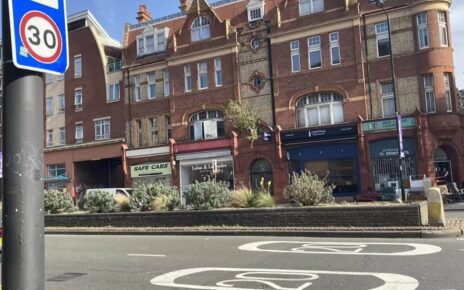BRITAIN is at "exceptionally high" risk of wildfires as a 36C heatwave hits this weekend, the Met Office warned.
The risk of fires in parts of England and Wales on Sunday has increased from "very high" to "exceptional" on the Fire Severity Index.



This means most of southern England – as far west as Abergavenny in Wales – is at the highest level on the Met Office's scale.
The latest alert follows their recent amber weather warning of extreme heat in place since yesterday until Sunday.
Today the country is set to bask in glorious 30C weather as the country overtakes holiday destination Hamilton, Bermuda, which sent the mercury to 29C on Wednesday.
Yet thermometers could peak at 36C in some areas on Saturday – so weather and fire experts are being cautious of the wildfire risk.
Read more UK News

‘ISIS Beatle’ charged with terror offences after landing at Luton

Paraglider plummeted to shock death in front of horrified pal on day out
Met Office meteorologist Marco Petagna told the PA news agency: "The risk is very high across much of central, southern and eastern England.
"Going into Friday and the weekend, it starts to increase further, going into the highest category of exceptional risk."
In the past few weeks wildfires have broken out across the UK where dry grass and woodlands have caught alight.
Mark Hardingham, the chairman of the National Fire Chiefs Council (NFCC) told The Telegraph said the summer heat has been unlike any other over his entire 32-year career in the fire service.
Most read in The Sun

Strictly stars Max George and Maisie Smith seen 'snogging' on flight

EastEnders' Michelle Collins, 60, marries fiance, 38, in white jumpsuit

Chelsea set to complete £67.6m De Jong transfer with Barcelona agreement close

Fence painting hack that doesn’t require a brush
He said: "We're not going to see temperatures as hot as we saw three weeks ago, but that doesn't matter because the ground couldn't get any drier than it already is."
Mr Hardingham added: "The wildfires are as prevalent in semi-urban areas as they are in rural communities so it's difficult to know where the next one will be."
The UK Health Security Agency has also released a Level 3 Heat Health Alert for southern and central England lasting until 6pm on Saturday.
Officials have warned Brits to look after each other in the fierce heat of the next few days.
Those in the hottest areas should take care to stay hydrated, close their curtains and avoid wildfire smoke.
The risk of fires is so high because southern England had experienced its driest July since records began in 1836, according to the Met Office .
South-East and central southern England had an average of just 5mm (0.2ins) of rain last month, while East Anglia had only slightly more with 5.4mm (0.21ins).
Hosepipe bans have also been enforced across the country affecting millions as water companies scramble to save supplies.
Brits in certain areas are forbidden from using hosepipes to water gardens or clean cars, and ornamental ponds and private swimming pools must remain empty.
But river flows and groundwater levels could even remain low for the next three months, the UK Centre for Ecology and Hydrology warned.
Mr Petagna from the Met Office said that rain could be on the horizon early next week.
He said: "There are signs that we could get some rain next week, but details at the moment are uncertain.
"What we really need is a few weeks of light rain to soak into the ground.
"Thunderstorms are more likely to cause some flooding issues because the ground is hard the water can't sink in."
At the end of last month, a massive wildfire erupted in Suffolk just hours after fire crews tackled a series of enormous blazes across London and Surrey.
Read More on The Sun

Maisie Smith dances in bikini as she proudly shows off ‘thunder thighs’

I live alone in 128 flats… the council offered £35k & free rent but I won’t move
Knodishall Common in the east of the coastal county was engulfed by flames on Sunday evening – sending black smoke billowing across the area.
To avoid more wildfires, Brits have been advised not to light bonfires or have barbecues.



Source: Read Full Article

